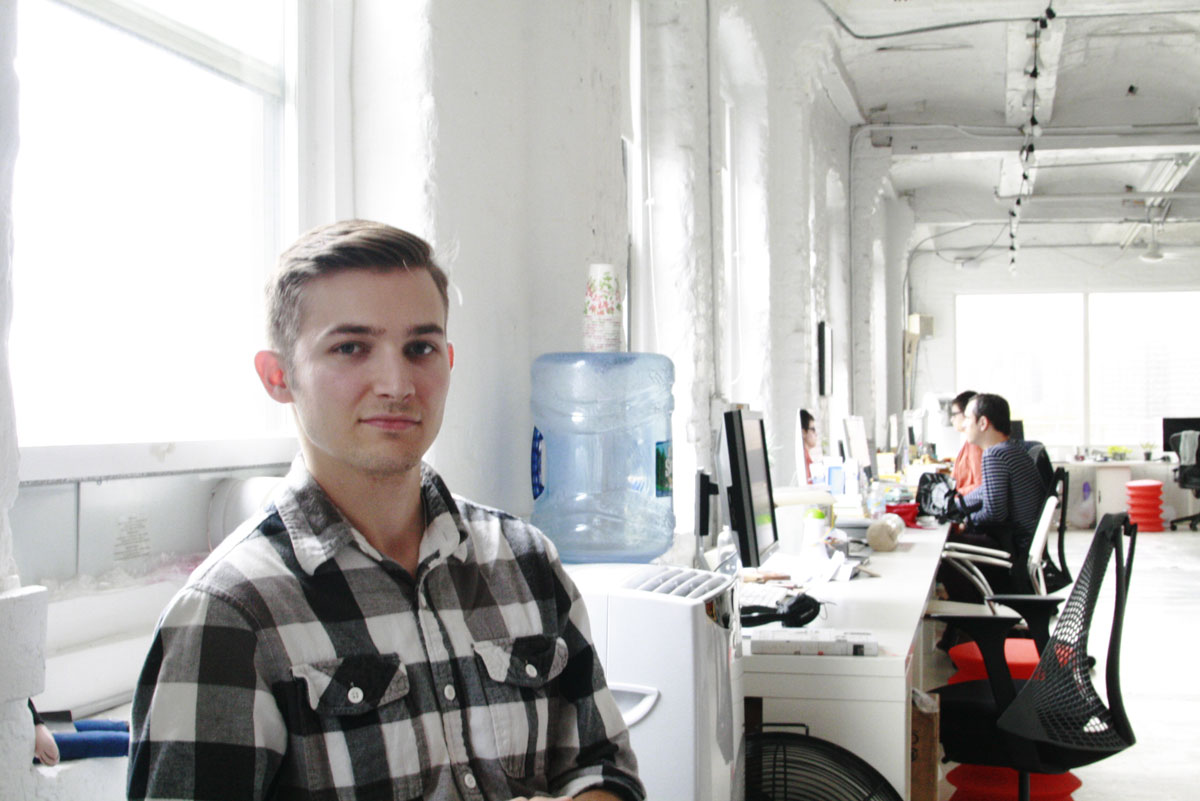In the startup culture of technology, it’s the little projects that get you the big jobs, and then it’s often the big jobs that help you land wherever it is you most want to be.
Jonnie Hallman moved to Brooklyn two years ago from San Francisco, where he worked on small teams behind major projects inside Adobe. He got there by way of hobby development work he had done.
He came here knowing that he wanted to be part of Studiomates, the famously curated shared workspace in Dumbo started by Tina Roth Eisenberg that includes several of the founders behind Brooklyn Beta in addition to other local web luminaries.
“I’m here all the time and energized by people who want to make stuff, too,” he said.
 He said the feeling in San Francisco was very different, at least for him, working at an enterprise level company.
He said the feeling in San Francisco was very different, at least for him, working at an enterprise level company.
Hallman got his job at the company because he was noticed having built a couple of very early apps, such as Destroy Twitter. Hallman started coding websites himself at the age of ten. He went to Adobe and helped to build a conference app and then a digital publishing suite (first used by Wired Magazine). A little while after those projects wrapped up, he wanted to venture out on his own and come back east.
He went to college in Baltimore at the Maryland Institute College of Art and was raised in Allentown. His nearest family members were all creative and encouraged him to pursue his creative interests. He briefly studied design but came back to coding. He decided he really liked to build.
Now, he works with Oak Studios, a firm based inside StudioMates. The team is currently building SiteLeaf, an interesting new content management system built to land somewhere between SquareSpace (which does all the coding for you) and a blank HTML editor (that does nothing for you).
SiteLeaf helps you to set up your design, load in your content, test your site out in a real web browser and make the site your own. When you click publish, though, it spits everything out as pure HTML. Everything. So you don’t need SiteLeaf to run your site. Nor do you need a database. Once you’ve hit “publish,” our site is a static page that stands on its own.
Advantages, as Hallman describes it:
- Super light. You can host your creation on a host like Amazon S3 and pay pennies per month and get super fast load times.
- Fully customizable, with or without the service. You can build your site in SiteLeaf, quit the service and never use it again. Yet you could keep making changes to the code SiteLeaf exported, provided you know how to work with HTML. In fact, that makes it future proof — if SiteLeaf disappeared, you could keep working on your site using any other HTML editor.
- No update terror. If you’ve ever had your site fall apart after updating some random addon within your CMS, you know update terror. Since a SiteLeaf site is straight HTML, there’s no drama to come from an update.
Hallman’s story is one that does a great job of illustrating how micro-communities begin to develop within healthy communities. Hallman puts a fair amount of energy into other community building projects, but they are primarily built within Studiomates (which has so far expanded to two very large spaces on the sixth floor of 10 Jay St). He occasionally does Q&&A sessions for non-developers at the space, so that other members can ask him and another programmers their questions about code. He also hosts the 3 pm coffee break for the space’s coffee drinkers, as the barista behind Cafe Jonnie (which inspired Bar Lawrence).
While he’s a partner at Oak Studios, he still works on side projects, such as Teux Deux. The iOS app was his first freelance project and it got him into the workspace that he now describes as a second home.
“Productivity for me is writing code,” he said.
Join the conversation!
Find news, events, jobs and people who share your interests on Technical.ly's open community Slack
